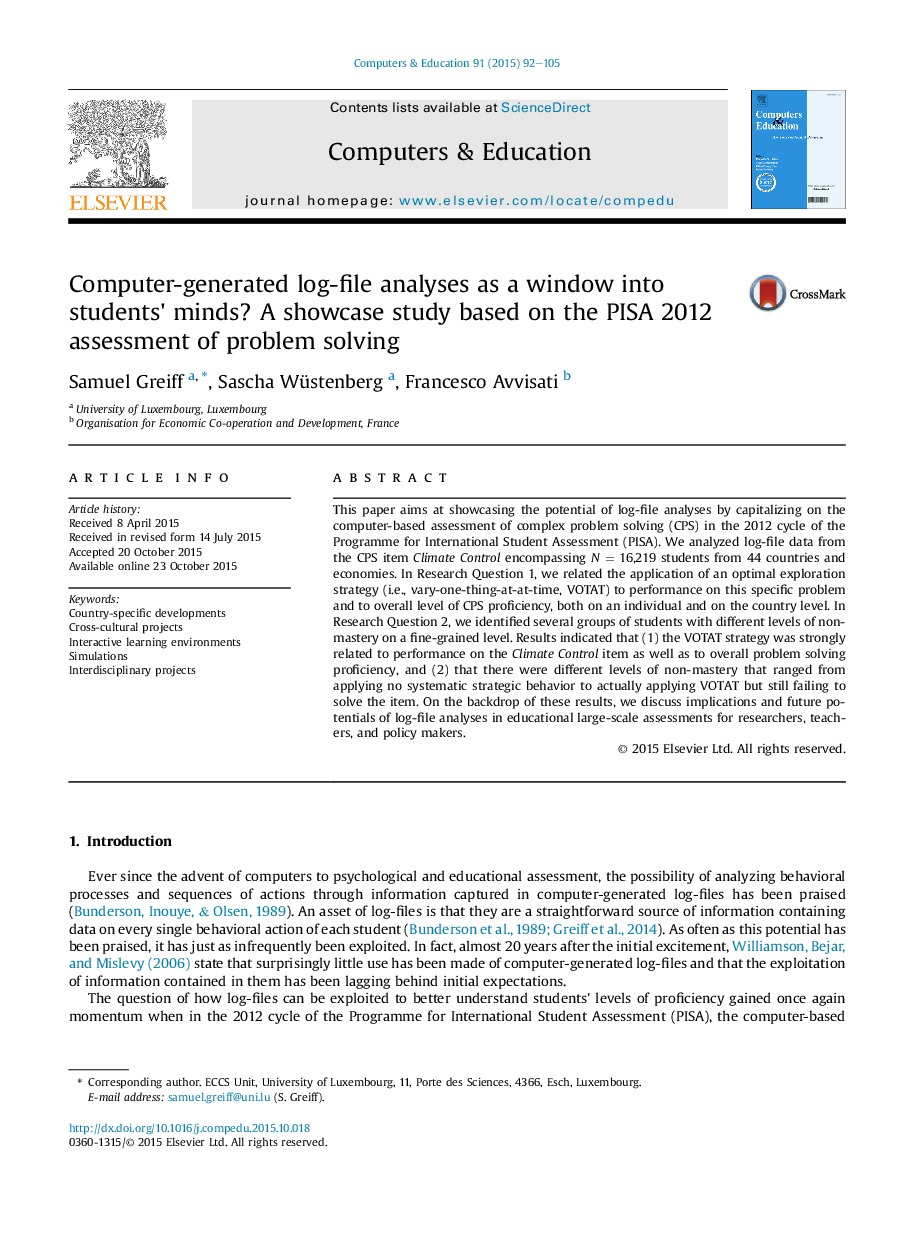| Article ID | Journal | Published Year | Pages | File Type |
|---|---|---|---|---|
| 348200 | Computers & Education | 2015 | 14 Pages |
•Computer-based assessments enables analyses of log-files that contain students' actions.•We analyzed PISA 2012 problem solving log-files of over 16,000 students.•We related students' strategic approach to performance on an individual and country level.•We identified several groups of students with different levels of (non-)mastery.•We discuss implications of log-file analyses for scientists, teachers, and policy makers.
This paper aims at showcasing the potential of log-file analyses by capitalizing on the computer-based assessment of complex problem solving (CPS) in the 2012 cycle of the Programme for International Student Assessment (PISA). We analyzed log-file data from the CPS item Climate Control encompassing N = 16,219 students from 44 countries and economies. In Research Question 1, we related the application of an optimal exploration strategy (i.e., vary-one-thing-at-at-time, VOTAT) to performance on this specific problem and to overall level of CPS proficiency, both on an individual and on the country level. In Research Question 2, we identified several groups of students with different levels of non-mastery on a fine-grained level. Results indicated that (1) the VOTAT strategy was strongly related to performance on the Climate Control item as well as to overall problem solving proficiency, and (2) that there were different levels of non-mastery that ranged from applying no systematic strategic behavior to actually applying VOTAT but still failing to solve the item. On the backdrop of these results, we discuss implications and future potentials of log-file analyses in educational large-scale assessments for researchers, teachers, and policy makers.
